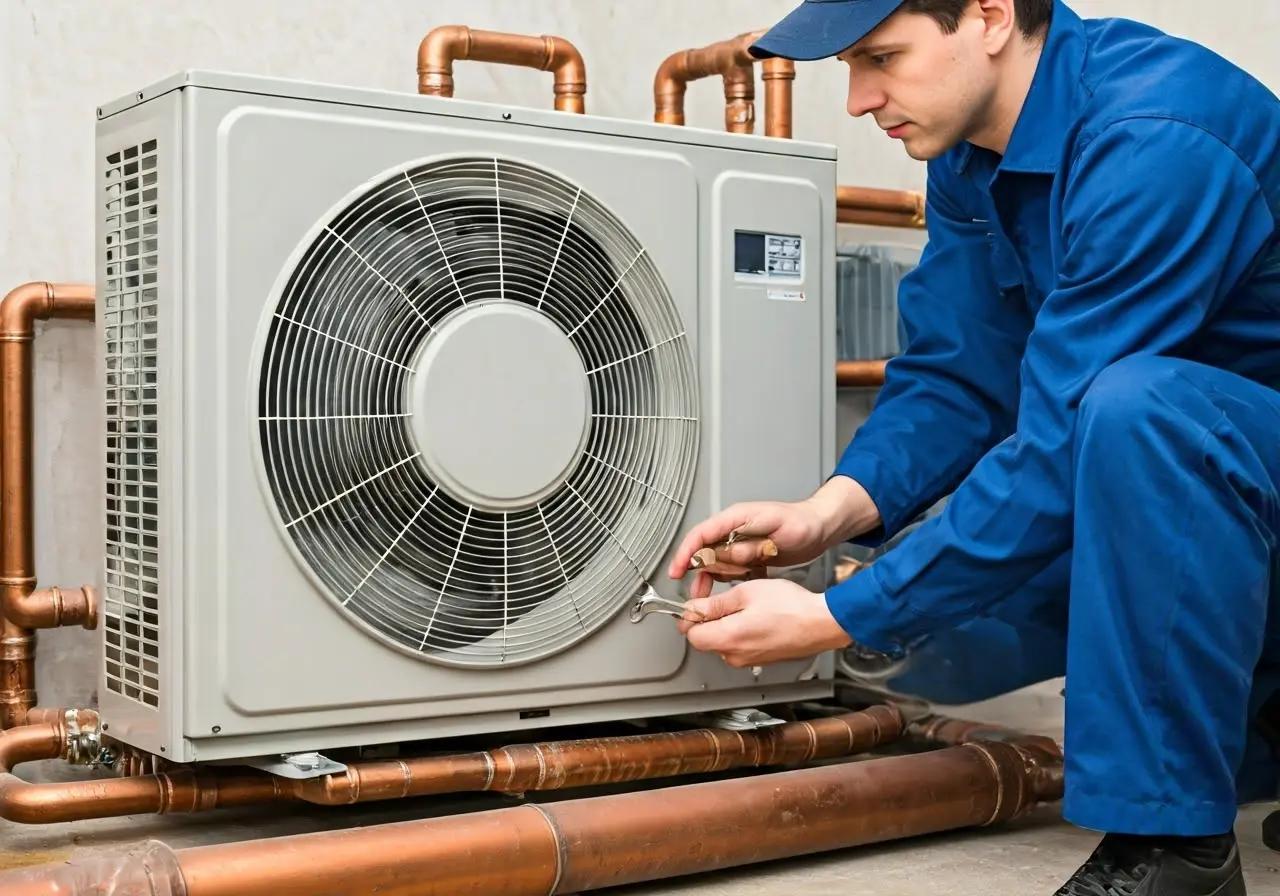License #: CAC1821281

Maintaining Your Heat Pump: When to Call for Repair
Heat pumps are an efficient way to manage home heating and cooling needs, but like any system, they need regular maintenance. Understanding when to call for repair can save you time and money, ensuring your home remains comfortable year-round.
Understanding Heat Pump Basics
Before diving into maintenance and repair, it’s important to have a basic understanding of how your heat pump works. Heat pumps transfer heat from one place to another, providing both heating and cooling for your home. Unlike traditional systems, they do not generate heat but move it, making them more energy-efficient.
A heat pump consists of two main components: an outdoor unit and an indoor unit. The outdoor unit contains a compressor that circulates refrigerant, which absorbs and releases heat as it travels between the indoors and outdoors. During the winter, it extracts warmth from the outside air and transfers it inside. In the summer, the process is reversed, and heat is removed from your home and released outside.
Because heat pumps operate year-round, they can experience wear and tear that affects performance. Regular maintenance is crucial to keeping your system running efficiently. On that note, manual maintenance tasks you can do include cleaning filters and checking the thermostat, ensuring your heat pump is set up correctly for optimal performance.
Regular Maintenance Tips
Regular maintenance is essential to keep your heat pump running smoothly. This includes tasks like cleaning or replacing filters, checking the thermostat, and inspecting ducts for leaks. Simple routine checks can prevent larger issues and prolong the life of your system.
Change the air filters regularly, ideally once a month or as recommended by the manufacturer. Dirty filters reduce airflow through the system, which can cause the heat pump to work harder than necessary, leading to potential damage. Maintaining clean filters can improve efficiency by 10-15% as noted by the Department of Energy.
Inspect the outdoor unit to ensure it remains clear of debris such as leaves, dirt, and snow. Cleaning the coils and the surrounding area can prevent blockages and improve efficiency. You might find it useful to inspect coils often, especially in peak seasons.
Regularly check and clean the supply and return registers in your home. Keeping vents unobstructed can promote better airflow and enhance overall system performance. Ensure the fan is operating correctly by using the ‘auto’ setting on your thermostat, which is less likely to degrade heat pump performance over time.
Common Signs Your Heat Pump Needs Repair
Even with regular maintenance, heat pumps can develop issues. Common signs that it’s time to call for repair include unusual noises, insufficient heating or cooling, frequently cycling on and off, and higher energy bills. Paying attention to these signs can prevent more serious problems.
Unusual noises such as grinding, screeching, or banging sounds indicate that some components might be loose or damaged. Ignoring these noises can lead to more extensive repairs. According to Ainsworth & Co., addressing these early can mitigate the risk of costly damage.
If you notice inadequate heating or cooling, despite adjusting the thermostat, it may point to issues like refrigerant leaks or a faulty compressor. Immediate professional attention is necessary to diagnose and repair the issue to restore comfort and efficiency in your home.
Short cycling, or frequent switching on and off of the heat pump, can strain the system and reduce its lifespan. This problem is often due to thermostat or sensor malfunctions, and requires immediate attention from experts.
A sudden spike in energy bills without a corresponding increase in usage could indicate that your heat pump is working inefficiently, possibly due to dirty coils, low refrigerant levels, or a malfunctioning component. Regular energy monitoring can help you catch these signs early.
When to Call a Professional
While some maintenance can be done by homeowners, certain issues require a professional touch. If you notice refrigerant leaks, electrical issues, or the system isn’t working at all, it’s best to call in a professional. They have the expertise and tools to diagnose and fix the problem efficiently.
For refrigerant leaks, it is crucial to call a professional due to the hazardous nature of refrigerants and the precise charging required. A defective compressor or electrical issues are also beyond the scope of DIY repairs and must be handled by experienced professionals to prevent further damage.
If your heat pump isn’t performing despite cleaning and basic troubleshooting, enlist a professional service such as KadeCo Inc for an expert diagnostic and resolution. Their skilled technicians can thoroughly inspect your system and propose reliable solutions.
Choosing the Right Repair Service
Finding a trustworthy repair service is crucial. Look for companies with good reviews, proper licensing, and reasonable pricing. Getting quotes from multiple services can also help ensure you get the best deal without compromising on quality.
When selecting a repair service, it is essential to verify their credentials and experience in handling heat pump systems. A company with a solid track record and certified technicians can offer superior service and peace of mind. Opt for services that prioritize customer satisfaction, transparency, and no upselling tactics.
Utilize online reviews and word-of-mouth recommendations to gauge the reliability of repair services in your area. Reputed services often offer free quotes, fair pricing, and guarantee their work. Always seek a comprehensive evaluation and diagnosis before proceeding with major repairs.
Keep Your Heat Pump in Top Condition
Regular maintenance and timely repairs are key to ensuring your heat pump operates efficiently and lasts longer. By keeping an eye on common signs of wear and knowing when to call for repairs, you can avoid larger issues and enjoy a comfortable home all year round.


